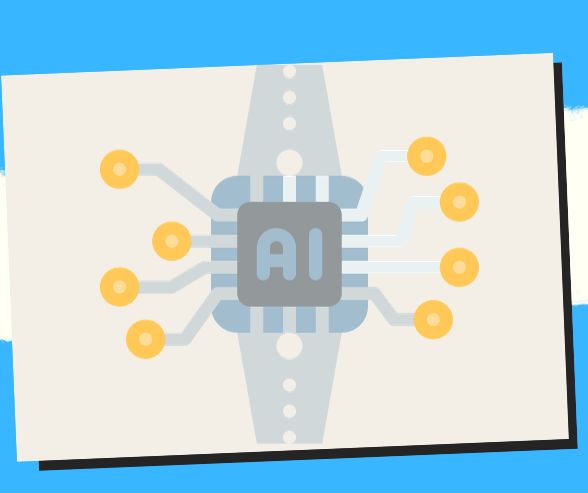
Navigating the Moral Maze: Unveiling the Ethical Complexities of AI Data Collection
Unveil the hidden world behind AI’s power – the ethical questions that arise as data collection pushes boundaries, reshaping the future.
Ethical Implications of Data Collection for AI 


In the era of rapid technological advancement, artificial intelligence (AI) has emerged as a transformative force across various industries. AI systems rely heavily on data to learn and make decisions, raising important ethical considerations regarding data collection. The mass accumulation and utilization of data for AI purposes have ignited a discourse around privacy, consent, bias, and transparency. In this article, we delve into the ethical implications of data collection for AI, shedding light on the multifaceted concerns that require careful consideration.
1. Privacy and Informed Consent
Privacy remains a cornerstone of ethical AI development. Collecting vast amounts of personal data without explicit informed consent raises significant concerns. Users’ personal information, from browsing history to location data, can be mined and used to build AI models. This has led to the emergence of more stringent data protection regulations like the General Data Protection Regulation (GDPR) and the California Consumer Privacy Act (CCPA). AI developers must prioritize obtaining clear and unambiguous consent from individuals whose data is being used, ensuring they are fully aware of the purposes for which their data will be utilized.
2. Data Bias and Fair Representation
The data used to train AI systems often reflects historical biases present in society. When these biases find their way into AI algorithms, they can perpetuate and even exacerbate social inequalities. For example, biased training data can lead to AI systems making discriminatory decisions in areas like hiring or lending. To mitigate this, data collection should encompass diverse demographics and perspectives to ensure fair representation. Moreover, continuous monitoring and auditing of AI systems can help identify and rectify biased outcomes.
3. Transparency and Accountability
The transparency of data collection methods and usage is pivotal to maintaining trust in AI systems. Users should be able to understand how their data is being collected, processed, and used. Lack of transparency can lead to skepticism and resistance towards AI adoption. Developers must provide clear explanations of their data collection processes, detailing the types of data collected and the purposes they serve. This transparency fosters accountability and empowers users to make informed decisions about their data.
4. Data Security and Breaches
As data becomes more valuable, the risks associated with its collection and storage increase. Data breaches can have severe consequences, including identity theft, financial loss, and compromised personal information. AI developers must prioritize robust data security measures to protect sensitive information. Encryption, access controls, and regular security audits are critical in safeguarding against breaches that could compromise both individuals and organizations.
5. Context and Sensitivity
Data collected for AI should be contextualized and treated with sensitivity. For instance, medical data used to train AI models for diagnosing diseases should be anonymized and stripped of identifiable information to protect patient privacy. Similarly, data collected from social media platforms should consider the context in which it was shared. Striking the balance between data utility and protecting individuals’ privacy is an ethical tightrope that AI developers must walk.
6. Ownership and Control
Questions surrounding data ownership and control have become more complex with the rise of AI. Users often provide data to platforms under the assumption that it will be used for a specific purpose, but this data may end up training AI systems without their explicit consent. It’s imperative to establish clear guidelines on who owns the data, how it can be used, and whether users can retain control over its dissemination.
7. Long-Term Impact
AI systems are designed to learn and evolve over time. Data collected today can have far-reaching consequences for future AI iterations. Decisions made based on data can shape societal norms, influence policies, and affect individual lives. Therefore, ethical data collection for AI should consider the long-term impact of the systems being developed, ensuring that they align with fundamental values and ethical standards.
8. Algorithmic Accountability
The algorithms powering AI systems are often complex and can be challenging to decipher. This algorithmic accountability gap can lead to situations where biased or discriminatory outcomes are difficult to trace back to their root causes. It’s crucial for developers to not only ensure that algorithms are functioning as intended but also to have mechanisms in place to rectify any unintended consequences promptly.
Conclusion
As AI continues to reshape industries and societies, addressing the ethical implications of data collection becomes paramount. Striking a balance between harnessing the power of data and safeguarding individual rights is a complex challenge. By prioritizing privacy, fairness, transparency, and accountability, developers can help ensure that AI systems are not only technologically advanced but also ethically sound. As stakeholders in this transformative journey, we must collectively strive to build AI that respects the rights and values of individuals and society as a whole.
Related Queries










Save/Share this story with QR CODE
Disclaimer
This article is for informational purposes only and does not constitute endorsement of any specific technologies or methodologies and financial advice or endorsement of any specific products or services.
 Need to get in touch?
Need to get in touch?

We appreciate your reading. 
1.) 

Your DONATION will be used to fund and maintain NEXTGENDAY.com
Subscribers in the Philippines can make donations to mobile number 0917 906 3081, thru GCash.
3.) 
4.) 
AFFILIATE PARTNERS

World Class Nutritional Supplements - Buy Highest Quality Products, Purest Most Healthy Ingredients, Direct to your Door! Up to 90% OFF.
Join LiveGood Today - A company created to satisfy the world's most demanding leaders and entrepreneurs, with the best compensation plan today.













